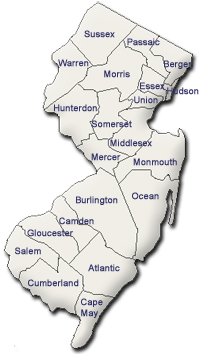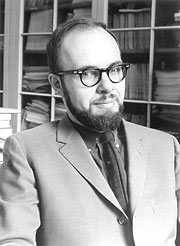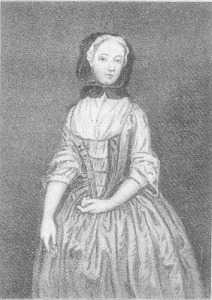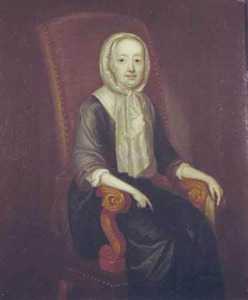Related Topics
Religious Philadelphia
William Penn wanted a colony with religious freedom. A considerable number, if not the majority, of American religious denominations were founded in this city. The main misconception about religious Philadelphia is that it is Quaker-dominated. But the broader misconception is that it is not Quaker-dominated.
Philadelphia Politics
Originally, politics had to do with the Proprietors, then the immigrants, then the King of England, then the establishment of the nation. Philadelphia first perfected the big-city political machine, which centers on bulk payments from utilities to the boss politician rather than small graft payments to individual office holders. More efficient that way.
Quakers: The Society of Friends
According to an old Quaker joke, the Holy Trinity consists of the fatherhood of God, the brotherhood of man, and the neighborhood of Philadelphia.
Quakers: William Penn
Although Ben Franklin gets more ink lately, William Penn deserves at least equal rank among the most remarkable men who ever lived.
The Proprietorship of West Jersey
The southern half of New Jersey was William Penn's first venture in real estate. It undoubtedly gave him bigger ideas.
New Jersey (State of)
 The Garden State really has two different states of mind. The motto is Liberty and Prosperity.
The Garden State really has two different states of mind. The motto is Liberty and Prosperity.
Revisionist Themes
In taking a comprehensive view of a city, an author sometimes makes observations which differ from the common view. Usually with special pride, sometimes a little sullen.
Government Organization
Government Organization
Right Angle Club 2010
2010 is coming to a close, a lame-duck session is upon us, and probably after that will come two years of gridlock. But the Philadelphia Men's Club called the Right Angle, keeps right on talking about the current scene. A few of these current contents relate to speeches given elsewhere.
Quaker Theology
New topic 2016-12-04 04:18:19 description
Interesting Quaker Characters
All alike, but all different.
Robert H.Bork Upsets A Century of Antitrust Law
According to the late Robert H. Bork, it ought to be fairly easy to identify price-fixing, because legitimate cases that harm the consumer by price manipulation aren't common, or may not even exist. With this, Bork convinced the judiciary to abandon a century of contrary belief while still a young law professor, thus establishing his own reputation with Ronald Reagan. He was appointed Solicitor General by Richard Nixon, unfortunately thus embroiling himself in Nixon's impeachment.
William Penn, Excellent Lawyer, Terrible Businessman
Richard Dunn, who with his wife Mary Maples Dunn stand as the two core authorities on the life of William Penn, merely smiles when asked to describe what Penn was really all about. "What we need is to have one good biography emerge," said he, "but it isn't easy to guess what it will say". For the present, let's just sketch a few paradoxes which somehow need threading together.

|
| Richard Dunn |
In the first place, the wealth of William Penn can only be described as prodigious. His father had played a central role in restoring the Stuart monarchs, and in the course of it had conquered for the Crown the enormously valuable property of the Island of Jamaica. For these efforts, the father had been rewarded with extensive properties in Ireland and a highly influential position at Court. To all of this was overgenerously added as debt repayment, the American territories which have now become the states of Delaware, New Jersey, and Pennsylvania. Actual ownership of some of this was shared with others, but all of it was quite effectively controlled by young William. No one else stands even close as the largest private landholder in American history. But to appreciate the immensity of his wealth, it should be understood that he treated this property as a sort of hobby. Over the course of his lifetime, the colonies lost money, and Penn subsidized them rather seriously from his other assets.
At the same time, Penn lived vastly beyond his income in ordinary ways, becoming heavily indebted, eventually going to debtor's prison. It probably was not necessary; his sons renounced Quakerism and made a profit on the colonies after they inherited them. Although he could display remarkable organizational talent, particularly in the organization of New Jersey, his management was mostly slack, his judgment of agents often proved too trusting, and he permitted himself to be exploited by poorly-designed contracts to his eventual financial ruin. Even that might not have been serious; he displayed a towering legal mind in the devising of the doctrine of jury nullification and was the winner in a great many lawsuits. He even demonstrated he was capable of winning dubious lawsuits, soundly defeating Lord Baltimore in a border dispute over Maryland which others have said showed Baltimore had the stronger case. We know he had influence at Court, and such legal victories suggest he might on occasion have taken full advantage of it.

|
| Gulielma Maria Springett Penn |
From the sound of things, some have concluded Penn was so rich and powerful he grew careless about his own best interests, which essentially needed very little defense. In particular, he gave this impression to his fellow Quakers, who concluded he did not need nor likely would stoop to collecting what he was owed in taxes and property sales. This cavalier attitude encouraged the early Quaker merchants to follow their own advantage without shame, and as it happened with great vigor. The Constitutions he devised for the colonies are frequently cited as the brilliant cornerstones of fairness and stability, ultimately the models for much of our present Constitution. Penn really was sincere in wanting to provide a better life for the working people than they could have at home in England. But in the Seventeenth Century, the modest role he devised for the Proprietor commanded little respect and was not one his aggressive clients would have chosen for themselves in his position. Perhaps the most generous description of their passive aggression would be that he taught power and governance to be the collective possession of the whole Quaker meeting, so the leaders of the meeting simply took him at his word. For their part, there can be little doubt of their commercial talents; trade and industry immediately thrived in the colony. However, sharp, aggressive trade and commerce were not things a gentleman would himself want to associate with.
Unfortunately, the historical records of the early colonies are not good; for the most part, we have to surmise the struggles and frictions between a rich, financially careless, and sincerely earnest theologian in his contention with a group of poorly educated strivers who had been told he regarded each of them to be his equal. As the saying goes, he was rich beyond denying. And therefore, he was probably arrogant beyond his own ability to see it as a flaw.
Equal before the law, perhaps, and equal in the prayers of First-day Meeting. But everything about his upbringing, his social circle in London, and his staggering wealth suggested that even a saint would have trouble believing, deep in his heart, that these were truly his equals. And even if perchance he did believe it, they would not have believed it for a moment, had their positions been reversed. Penn certainly acted as though he believed in religious freedom, serene in the idea that if every person earnestly thought hard about ethical issues, everyone would eventually reach about the same conclusion. The elders of the meeting, however, behaved in ways which suggested they would personally prefer non-Quakers to settle somewhere else, and given half a chance would create Quakerism as an established church. There seemed to be those who felt that Friend William was perhaps a little too trusting. And anyway there were some obvious paradoxes. William Penn kept personal slaves.

|
| Hannah Callowhill Penn |
With two wives, William Penn had thirteen children. Among them was considerable diversity of opinion, along with the same tendency to rebellion found in any two generations. Early illnesses and chance led to the emergence of those children who renounced Quakerism and showed no shame at all about wanting to have money in order to spend it recklessly. One would have supposed that a man of Penn's intellectual stature would have been able to control his family better, but his own reckless youth had been so extreme that he had few arguments available when, as seems virtually certain, rebellious children defended themselves by reminding him of his own indiscretions. William Penn displayed absolutely no sense of humor; a touch of it would have been useful in mastering a family and friends who were undoubtedly having a little trouble knowing what to make of this apparition in their midst. Some equally pompous Pennsylvania merchants might have had difficulty denying that in their passive aggression, they occasionally resembled the spoiled brats with whom he found he had ample family association.
REFERENCES
| Remember William Penn, 1644-1944: A Tercentenary Memorial : Edward Martin: ISBN-13: 978-1258369934 | Amazon |
Originally published: Friday, January 08, 2010; most-recently modified: Wednesday, August 14, 2019